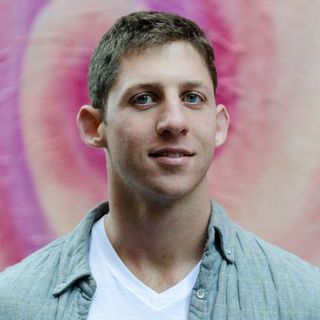Q&A with Robert Crocker, Tableau and Data Visualization Consultant
By Alan Hylands

Analysing data has come a long way from the days of studying pie charts and tables of figures in spreadsheets. Publications like The Pudding and the New York Times have helped take data visualization to a new level and it’s in this world that data viz consultant Robert Crocker excels.
A globe-trotting digital nomad, Robert uses his skills in Tableau to bring real insight and business wins to some of the world’s largest companies. Let’s hear from Robert and see where his journey into the world of data visualization consulting began:
Tell us a bit about yourself, how did you get into the data space and what does your data journey look like so far?
I started out as a Supply Chain Analyst. I transformed more data with MS Access than I care to admit. Thankfully the team I was working with allowed me to be the first from the team to display our supply chain simulation data with Tableau. After doing that for some time I moved into a proper IT role to learn how to build data pipelines with SQL to feed my dashboards.
After that work I moved out to the Bay Area to dive deeper into the technical side of things with D3 and Javascript. Professionally, I was a consultant for Slalom where my job was primarily designing Tableau dashboards for our client base in that local market. Now I am a nomad freelancing remotely for clients like IBM, Nike, Paul-Mitchell and all sorts of others.
What’s a typical day look like for you in your current data role? Which tools and languages do you use? Big team/small team/lone wolf?
I’m using Tableau as an individual freelancer, which means my roles is different for each client. For some, the job description is as specific as building a single chart, while others have me making all their strategic decisions around the Tableau platform while also developing their dashboards.
You’ve built up a good following through your own blog and newsletter. How important do you think it is for data professionals, at all stages of their career, to share publicly what they are doing and learning?
It depends on what you want, but I do think a body of work demonstrates a level of dedication to the craft that clearly sets candidates apart. It also says a lot about your interest in data visualization and/or analytics, which is extremely important as you move throughout your career.
So I’d tell anyone to look for areas that interest them and see if there isn’t a way to publicly demonstrate these interest. Bonus points if the work you share can be made useful for others, such as tutorials.
Where do you see your own data career going next? Building on your technical skills or moving into a more management-based role?
I honestly don’t want a management role. I love building things. Tableau has actually expanded the breadth of their tool quite a bit lately which has had me dive a little more deeply into Tableau itself. I love D3 and JS, so those will always be fun hobbies.
I want to keep my SQL strong and might build a few data pipelines with Airbnb’s open source tool Airflow just so I can learn more about what it takes to engineer components I have not had to handle myself while continuing to leverage the skills I already have.
So more learning and hopefully stability in my clients base. I might need to build up some sellable assets to generate passive income as well, but stable clients first.
If you had a list of “best-kept-secrets” (websites, books, coaches) that have helped you, which would you recommend?
MOOCs are everything, but the amount, of courses, you can take is ridiculous! That said, I do think you should always be learning so enroll in at least a course at a time and give yourself an hour a day M-F to consistently chip away at the course material.
What is the number one piece of advice you give to aspiring data scientists?
Learn to love the journey. If you aim to learn the first principles behind the applications(abstractions) we use to be productive you’ll be able to make better, more thoughtful decisions as a data scientist.
Where can readers find you online?
I post on vizsimply.com every once in a while, but I’d love to see you say hi on Twitter @robcrock or LinkedIn.